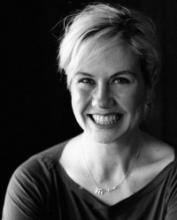In 2014, Classics Professor Sarah Stroup created a new course focused on STEM subjects in antiquity (CLAS 314). The course approaches the scientific, technological, engineering, mathematical, and medical advances of the ancient Greeks and Romans not just through readings and lectures but also through weekly sessions at the CoMotion MakerSpace in Fluke Hall, where the students, in teams of five, research, plan, and build an actual piece of ancient technology. The list is an impressive one (as several of us can attest who have visited the MakerSpace to see her students in action): from wax tablets to catapults (a lot of catapults), from pentapastos (5-pulley) cranes to 3D printed waterwheels, from a working aqueduct to a 3D printed hydrostatic fountain.
The course material also leads to a discussion of issues of ethics and technology, in which ancient and modern STEM come fruitfully into dialogue. STEM in Antiquity enrolls 65 students, and is assigned a graduate TA, for whom the experience offers a distinctive enhancement of the teaching portfolio upon entry to the academic job market. CLAS 314 is one of six courses featured in the College of Arts and Sciences Viewbook for Prospective Students, entitled Find Yourself Here. The course has attracted attention beyond the boundaries of UW: colleagues at UNC Chapel Hill, Temple and (yes) MIT have contacted Sarah to find out more about ‘STEM in the ancient world’.
All of us in Classics are grateful for Sarah’s remarkable innovation in teaching that brings such unlikely bedfellows together: Classics and technology. The course also brings together students from all sectors of the campus. We are delighted that Sarah’s pedagogical creativity has been acknowledged in her being honored with the Distinguished Teaching Award for Innovation with Technology for 2019. Congratulations, Sarah!
For the announcement of the award, click HERE.
In addition, if you wish to learn more about Sarah's class, it was recently featured in this article in Nautilus.
